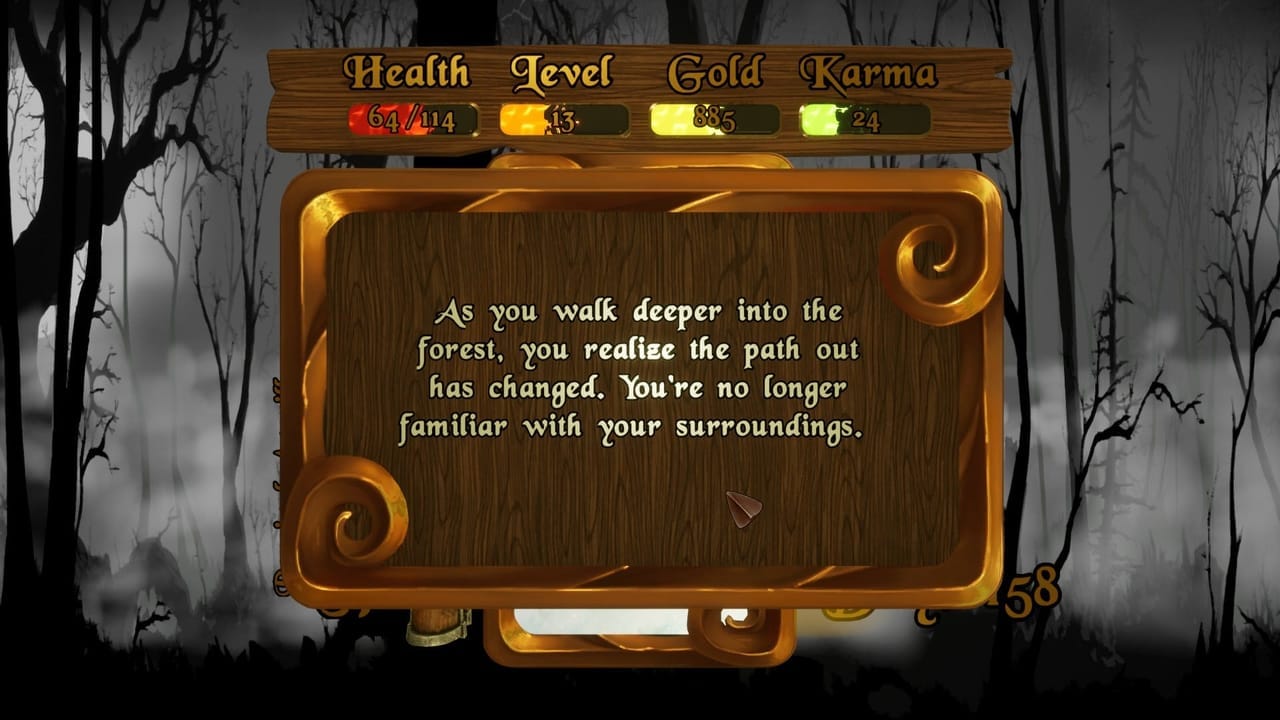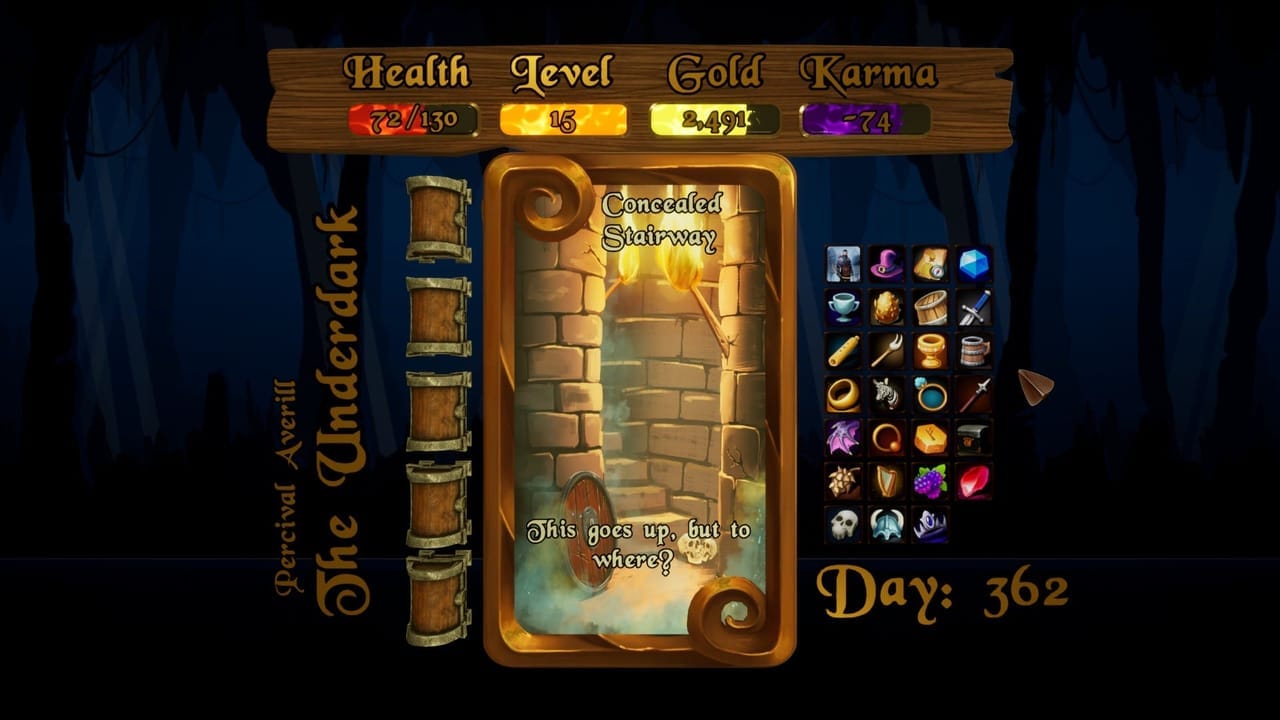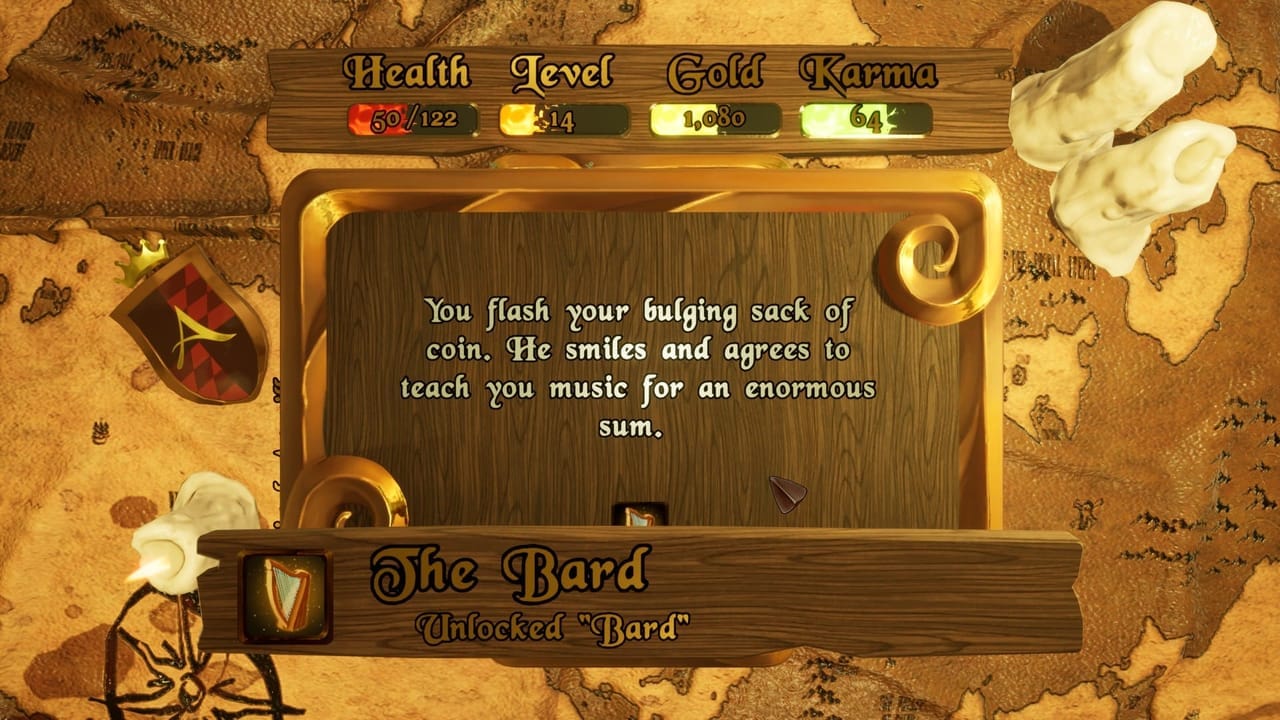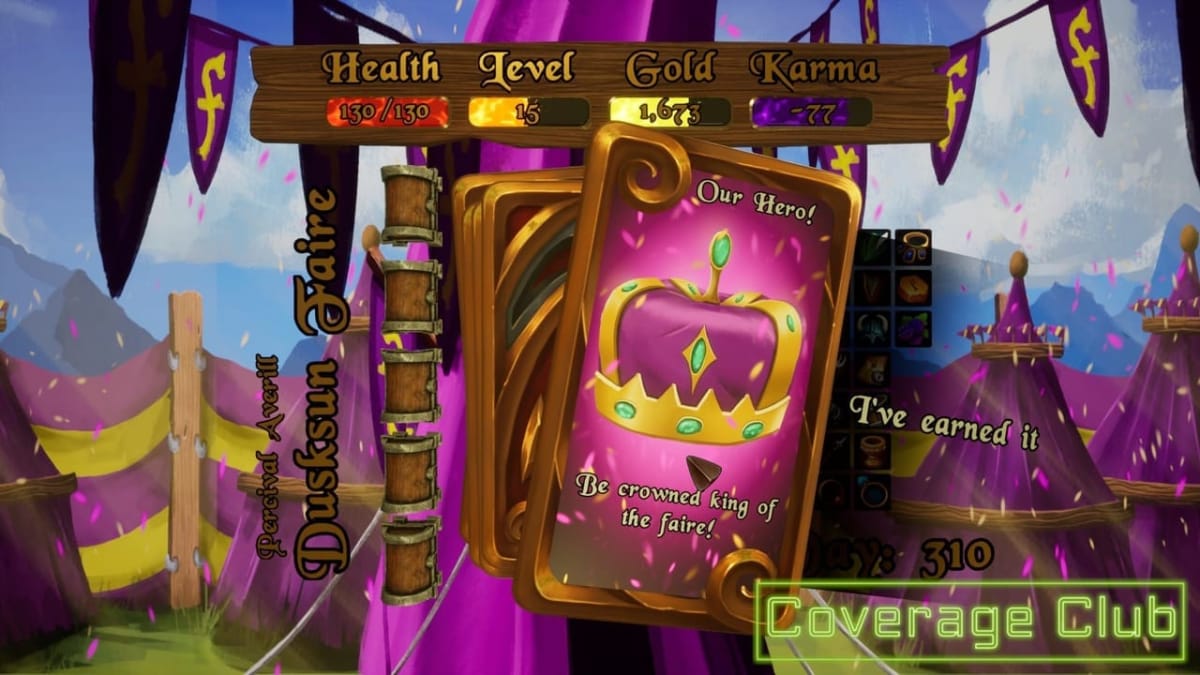Some games win you with their pitch alone. Alluris’ – quite simply that you’re playing a fantasy Oregon Trail with the gameplay of Tinder – grabbed me immediately. This perhaps comes from a deeply withheld yearning for all of life’s grandiose journeys to come down to a leftward or rightward swipe. The fantasy setting is another plus. Thusly pulled in, Alluris continued to hold my attention with a clean, simple and appealing aesthetic.
Beneath the design that the game’s elevator pitch so succinctly captures is a Dungeons & Dragons foundation. You begin Alluris by customizing a character who then begins a very typical RPG adventure. As you progress, you stop at inns, make deals with merchants, receive quests, explore forests, answer a bridge troll's questions, fight frightening beasts, and visit with vampires. It has the kind of wonder you’d expect from a D&D session but everything is hidden beneath swipes.
Need to rest at the inn? Swipe right. Want to explore the dark cave you’ve discovered? Swipe right. Don’t want to engage the big-nosed bird on your path in combat? Swipe left. Wish a group of vampires hadn't subdued you? Too bad, should’ve swiped left. If you’ve played one of the Reigns games, you get the gist: you’re continually choosing one of two choices.

As you play, some gameplay loops surface. For example: if you decide to pass on entering a city, you’ll likely next come across the entrance to a cave, forest, or mountain. There are two other hidden cities, one in the forest and one in the cave. You'll just need to swipe in the right direction.
While in a city, you’ll choose whether or not to visit an inn, speak with a merchant, visit the fare, pick up a quest from someone, and so on with different people or places you encounter. Constantly progressing through these and other loops of choices become repetitive. Once, the “Overworked Farmer” showed up twice within three cards. Other times you’ll see the same card pop up a few times without much space between. However, if you stick with it, surprises will also pop out – like when a wall-mounted trophy suddenly became alive. Thankfully, I successfully disenchanted it.

Even with the more interesting moments, at times I was flying through the same swipes. Yes, I want to enter Alluris; I want to stay at the inn; yes, I need a good night’s rest. It’s in this repetition that the simple swipe gameplay loses its charm. When frequent tasks like entering a town are nothing but a swipe of the same picture, it becomes mundane. You must also be careful if you start swiping quickly, as there is not the ability to undo a mistaken swipe. Live by the swipe, die by the swipe.
While I was playing, I also worried that the main music track – the one that plays during the main menu, or when you are in the overworld or a city – would become repetitive. This worry ceased somewhat when a different music track starting while I was in the forest or a cave. This promises that as you encounter different environments, different music tracks will accompany them.
Each environment also has a unique visual backdrop. The whole while you’re on the overworld, you’ll see a field as a backdrop, scrolling by. Staying at an inn, you’ll see a wooden tabletop in the background – static. These scene changes give you a sense of adventure beyond the images on the cards.

In my current adventure, I’ve become a vampire, a barbarian, acquired a fiefling demon child, got a pet turtle and a horse, and became an Elven Warlord. It is charming to see the consequences of a full D&D adventure play out as you only swipe left or right. Swiping doesn’t inspire long play sessions, though, so as much I loved the adventure, Alluris is best for quick sessions.
If the pitch appeals to you at all, I recommend you check Alluris out. Otherwise, swipe left.
TechRaptor covered Alluris on PC via Steam with a code provided by the developer. It’s releasing on August 30 for Steam, Discord, Xbox One, iOS, and Android.
Read more about Alluris in my interview with the developer at QuakeCon.
Have a tip, or want to point out something we missed? Leave a Comment or e-mail us at tips@techraptor.net






